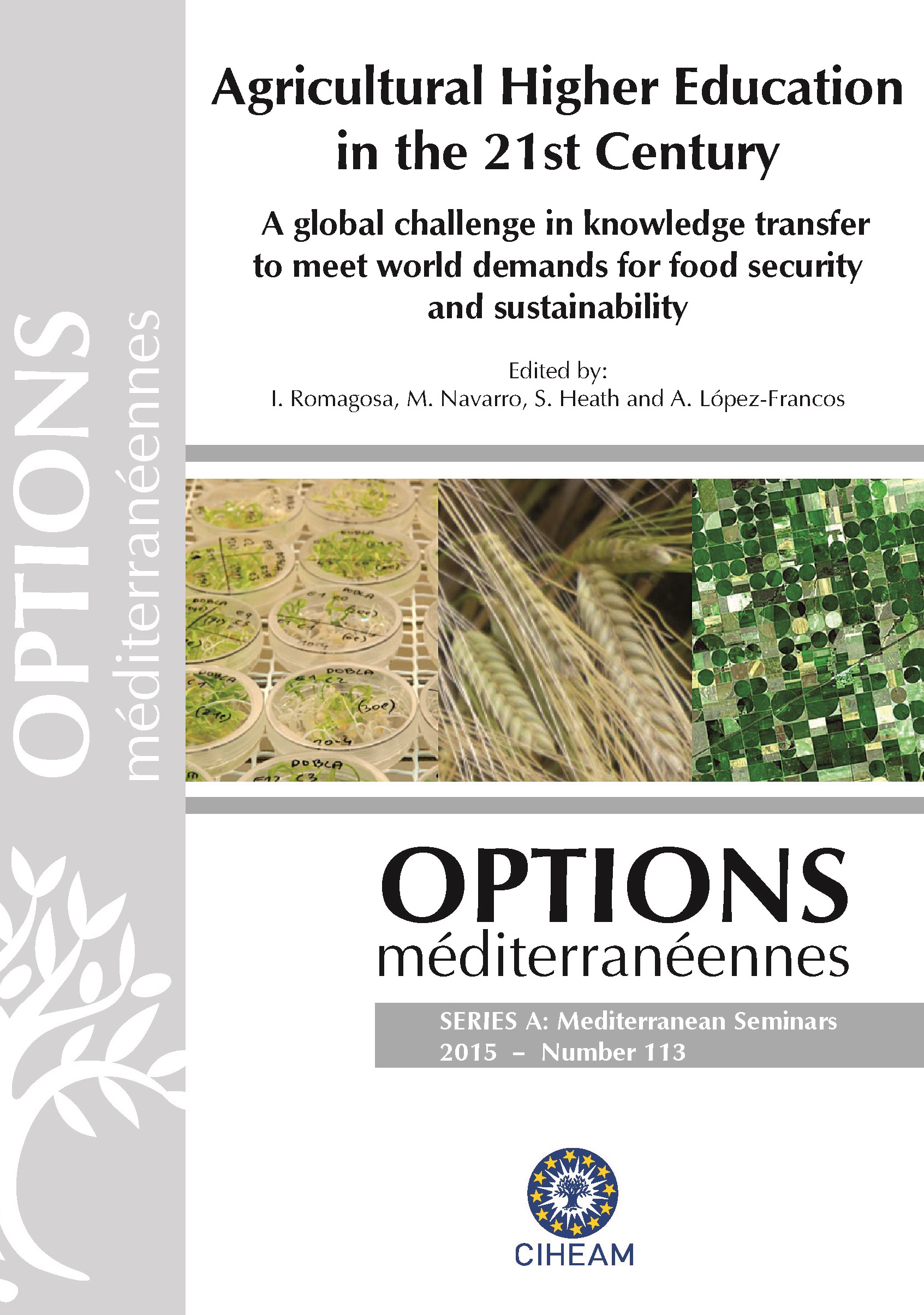
OM A113
Agricultural higher education in the 21st century : a global challenge in knowledge transfer to meet world demands for food security and sustainability
- [ Afficher ]
- [ Télécharger ]
- [ Exporter la citation ]
Vous pouvez télécharger la citation au format :
- [ Imprimer ]
Résumé
In the forthcoming decades we will have to double food production on less land per capita, with less water, often under limiting and highly variable environmental conditions, and assuring the sustainability of the agro-ecosystems. Agricultural Higher Education will undoubtedly contribute to fulfill these requirements, but for this it has to undergo profound changes. The challenges consist in attracting younger generations to study agriculture and life sciences, and in finding a way to complement classical agricultural education with new and emerging techniques. Education should motivate and enable graduates to work towards sustainable agricultural development in complex socio-economic and environmental contexts. The International Conference “Agricultural Higher Education in the 21st Century - A global challenge in knowledge transfer to meet world demands for food security and sustainability” was held in Zaragoza (Spain) from 15 to 17 June 2015. It was organised by the Mediterranean Agronomic Institute of Zaragoza of the International Centre of Advanced Mediterranean Agronomic Studies (IAMZ-CIHEAM), the Union for the Mediterranean (UfM), the Association for European Life Science Universities (ICA), the Global Confederation of Higher Education Associations for Agricultural and Life Sciences (GCHERA) and the Centre for Agricultural Research of the Hungarian Academy of Science, with the collaboration of the OECD. The Conference convened top-level experts from different areas of the world to discuss and propose recommendations for the future development of curricula in Agriculture and Life Sciences to face current global challenges for food production. This issue of Options Méditerranéennes publishes de Proceedings of the Conference including a summary report on the Conference and its conclusions, and 22 articles by the invited speakers, structured in 4 sections: (I) Challenges for agriculture in the XXI century; (II) Are current agricultural educational models suitable to meet global challenges?; (III) Addressing the needs and challenges for innovation in agricultural curricula; and (IV) Globalisation and international alliances.



